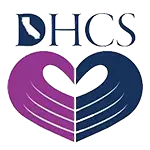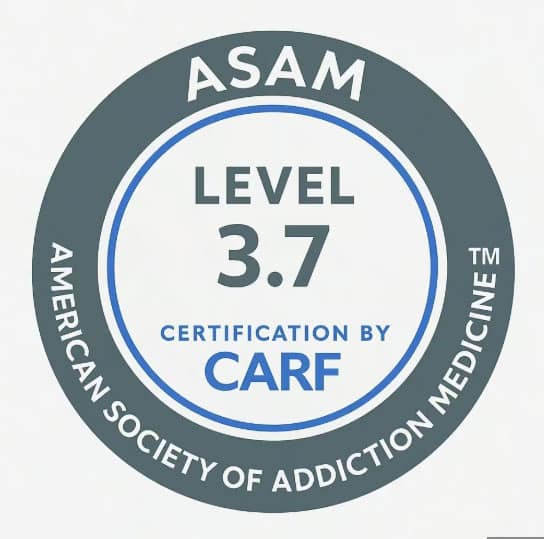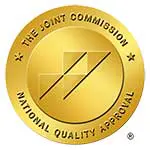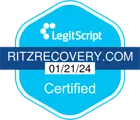Specialized Cocaine Addiction Treatment in Los Angeles
Struggling with cocaine addiction? At Ritz Recovery, we understand the complexities of cocaine rehab in Los Angeles. Our approach to combating this issue is deeply rooted in the understanding that each individual’s journey toward recovery is unique. Ritz Recovery is committed to offering a comprehensive treatment experience that addresses not just the physical aspects of addiction but the psychological, emotional, and social dimensions as well.

Understanding Cocaine Addiction
Cocaine addiction poses a significant problem with potentially devastating consequences. If you or someone you know is facing the challenges of cocaine addiction, seeking professional assistance is crucial. Numerous treatment options exist, and the most suitable one will depend on individual circumstances.
With appropriate treatment, support, and a strong commitment to change, recovery from cocaine addiction is possible, allowing individuals to rebuild their lives and embrace a healthier, substance-free future.
Contributing Factors to Cocaine Addiction
The symptoms of alcohol addiction can vary from person to person, but there are several common signs that may suggest an individual is grappling with alcohol dependence. These signs include:
One theory proposes that addiction arises from a chemical imbalance within the brain. Another perspective suggests that addiction emerges as a response to chronic stress and trauma. However, the complexity of addiction becomes apparent, as its underlying roots are not yet comprehensively understood.
Diagnosing Cocaine Addiction
Diagnosing cocaine addiction is not a one-size-fits-all process, as it varies based on individual circumstances. However, there are general guidelines that doctors and mental health professionals follow to assess and diagnose this condition.
In order to diagnose cocaine addiction, an individual must display specific symptoms associated with the disorder. These symptoms commonly include compulsive cocaine use, persistent drug use despite adverse consequences, and intense cravings for cocaine. Furthermore, the individual may experience difficulties functioning in their daily life due to their cocaine use.
Once these symptoms are identified, a comprehensive evaluation is conducted by a doctor or mental health professional to determine if the individual meets the criteria for a cocaine addiction diagnosis. This evaluation typically involves a thorough review of the individual’s medical history, a physical examination, and psychological assessments.
Indicators of Cocaine Addiction
Fortunately, treatment options are available for individuals grappling with cocaine addiction. Before delving into those options, let us examine some of the symptoms that may indicate cocaine addiction:
- Increased withdrawal and fatigue
- Sleep disturbances and difficulty sleeping
- Heightened irritability and anxiety
- Sudden and noticeable mood swings
- Loss of appetite
- Neglect of personal appearance
- Financial struggles
- Engaging in risky behaviors
If you or someone you know exhibits any of these symptoms, it is crucial to seek help promptly. Although cocaine addiction is a serious and often debilitating condition, it is indeed treatable.
By enrolling in a reputable treatment program under the guidance of qualified professionals, individuals struggling with cocaine addiction can embark on a path to recovery and ultimately lead fulfilling and healthy lives.
Treating Cocaine Addiction: Effective Approaches
Thankfully, there are successful treatment methods available that aid individuals in overcoming cocaine addiction and achieving healthy, productive lives. Some of these approaches include:
Behavioral Treatment
Behavioral treatment empowers those addicted to cocaine by teaching new skills and perspectives that break the cycle of addiction. This treatment can be conducted individually or in group settings, often employing a combination of cognitive-behavioral therapy and contingency management.
Medication
Medication is a prevalent treatment option for cocaine addiction. It aids in reducing cravings and managing withdrawal symptoms. Different types of medication are available, with the most suitable one determined by an individual’s specific circumstances.
Alternative Therapies
Complementary and alternative therapies (CATs) are increasingly incorporated into cocaine addiction treatment. While there is no single solution, CATs provide valuable benefits to patients.
Acupuncture, yoga, and meditation are among the popular CATs for cocaine addiction treatment. These therapies assist in stress and anxiety reduction, common triggers for relapse. CATs also improve sleep quality and energy levels, both crucial for recovery.
Beyond the physical and mental advantages, CATs foster a sense of community and support, often lacking in traditional treatment programs. For many patients, CATs play a significant role in their journey to recovery.
Finding the Appropriate Treatment for Cocaine Addiction
To discover the right treatment for cocaine addiction, it is essential to gain a comprehensive understanding of addiction itself and the available treatment options.
Cocaine addiction is a complex condition, and there is no universal solution. The most suitable treatment will depend on individual factors such as age, health, and personal history.
Numerous treatment options are available for cocaine addiction, including inpatient and outpatient programs, 12-step programs, and therapy. To find the ideal cocaine addiction treatment center for your specific needs, it is recommended to consult with a professional who can assess your situation and provide expert guidance on the most effective path forward.
Cocaine addiction poses significant challenges and can have adverse effects on various aspects of life. However, with the assistance of a reputable treatment center, it is indeed possible to overcome addiction and embark on a journey towards a brighter future.
Get Help Today
Schedule a confidential assessment with our admissions team.






